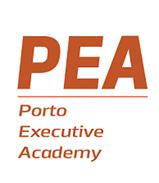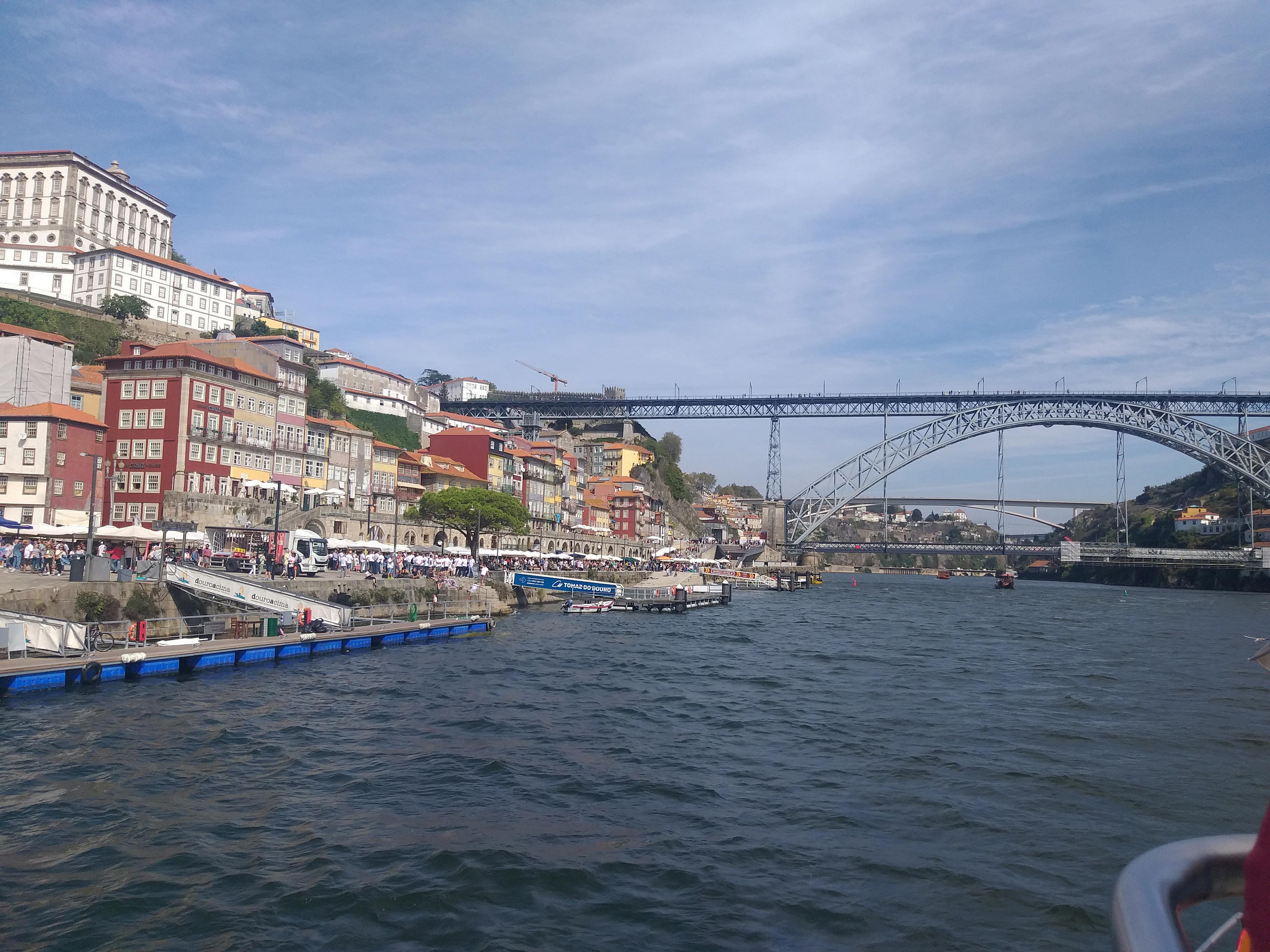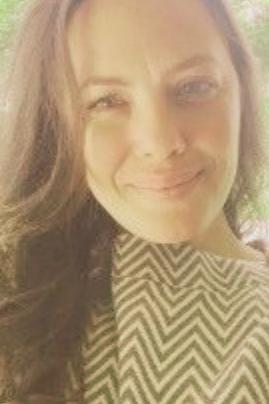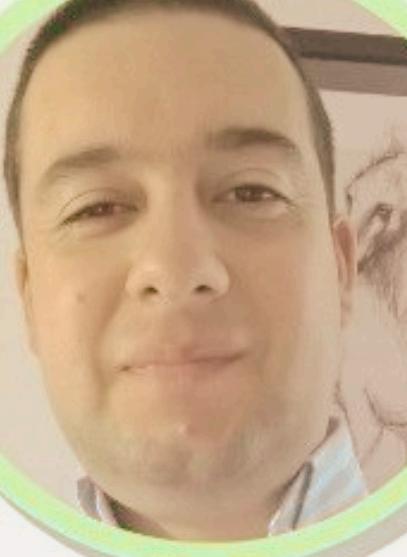

Build your pathway in an ever-ascending



Build your pathway in an ever-ascending
Online live classes (after-work schedule)
Taught by specialists in the field
Working language: English
Previewed duration: November 2024-July 2025
1st Application deadline: July 10, 2024



Why should you apply?
Technical Communication fosters the success of a company’s products and services, and the technical communicator strengthens the ROI of the companies by:
Easing user’s transition to new systems and processes
Enabling end-users to accurately operate new machines and products
Preventing misuse and damages
Contributing to cost reduction.
Effective Technical Communication is a key ingredient for the success of any product or service. Our postgraduate diploma in Technical Communication is designed for professionals from diverse backgrounds, including: Graduates, master's degree holders, and professionals from various fields such as IT, Engineering, Translation, Languages, Marketing, Sciences, and more.
Professionals seeking a career transition or change.
In essence, this diploma equips individuals from different backgrounds with the skills needed for successful Technical Communication, opening doors to new career opportunities.


Brief history of TC and current associations:
The main features of TC. Project management. Experts and their role in TC.
Terminology and language:
Terminology in TC. The construction of glossaries. Language and training for editors.
TC Manuals:
Types of manuals and their structure. Reference style guides. Target audience.
Structured writing teaches you to see typical informational and instructional materials as composed of concepts, procedures, processes, facts, structures, and principles.
Thinking with these typed information blocks helps you sort through disorganized materials, by identifying the purpose and interest of parts of the existing materials, while also suggesting how to ask for missing detail.
Typed information blocks guide you to create consistent blocks of documentation that are immediately useful, and to plan a complete documentation set for a mix of audiences.
## Learning objectives:
## Learning objectives:
Provide understanding of the basic principles of Technical Communication (TC) as well as different working methods.
Promote the development of linguistic, technical and communicational skills in (future) technical communicators.
Gather detail with information types.
Identify concepts with information blocks.
Teach behavior with steps, decisions, and consequences.
Justify behavior with processes.
Make facts findable and comparable.
Leverage structure to cover detail and detect change.
Explain harder decisions with principles.
Have a place for everything learned.

# Terminology Management
Terminology Management is designed to provide learners with the necessary skills and knowledge to understand, develop. and effectively use specialized terminology in various professional contexts.
This course will explore the principles and practices of terminology development, organization, and application, enabling students to communicate precisely and accurately in their respective fields.
# Information Gathering
Information gathering aims at developing students skills in searching, gathering, and managing information in technical communication projects, particularly for hardware.
This module will work on project planning and the use of agile methods for information gathering and management, as well as on elaborating a first structure - draft - of the technical content. Students will also have the opportunity to discuss the importance of defining and creating "usable" technical content in the digital age.
## Learning objectives:
## Learning objectives:
Understand the concept of terminology and its importance in various domains and industries.
Learn the process of creating and evolving specialized terms, including standardization and adaptation to emerging trends.
Explore methods and tools for organizing and maintaining terminology databases, glossaries, and dictionaries.
Recognize the importance of standardization in terminology and its role in enhancing communication and knowledge exchange.
Identify the phases that constitute a technical communication project.
Understand the importance of interpersonal and intercultural communication in the technical communicator profile.
Develop search, gathering and management of information techniques, in technical communication projects.
Plan technical communication projects, with the support of the appropriate tools.
Prepare and validate with specialists - SMES - a first draft of the technical contents to be created.
Understand the importance and challenges of defining and creating technical content in the digital age.
E: alexalb@iscap.ipp.pt
Domain models describe how users and stakeholders conceive part of a system or a product in useful detail. Domain models enable:
-Fruitful collaborations between business and technical people.
-Higher-level conversations between technical communicators, stakeholders, and subject matter experts, inspiring documentation that meets the needs of users effectively.
Explained domain models comprise diagrams, definitions, interactions, intentions, examples, and process. We will learn to create models by:
-Abstracting technical detail away from technical artifacts.
-Describing business interactions and the concepts seen in those interactions.
## Learning objectives:
Read UML class diagrams.
Refine class diagrams into business descriptions with use cases.
Create business descriptions from interacting actors and their motivations.
Identify business concepts and their relations.
Apply domain models to improve traditional documents.

Technical Writing Tools are software suites designed to assist technical writers in creating and managing various types of technical documentation.
These tools aim to streamline the writing process, improve collaboration, and enhance the overall quality and usability of technical documentation, making it an essential resource for technical writers and content creators.
## Learning objectives:
Review some of the comercial tools.
Review Open source tools.
Identify different tools.
Select the tool suite according to the content and audience.

This course will focus on the unique challenges and best practices involved in coordinating translation projects for technical content, focusing on the effective use of translation tools.
Through practical exercises and real-world examples, participants will gain the expertise needed to manage successful translation management projects of technical documents.
Technical Communication II aims at:
-Documenting user interfaces.
-Content formatting.
-As well as using global content, tone, procedures and specific cases.
-Grammatical use cases.
## Learning objectives:
## Learning Objectives:
Understand the role of translation management in technical communication projects.
Familiarize with computer-assisted translation (CAT) tools for technical content. Identify potential risks and implement risk mitigation strategies.
Integrate content management systems (CMS) for efficient translation management.
Develop comprehensive project plans for technical translation projects.
Monitor project progress and make data-driven decisions for successful outcomes.
Apply different writing techniques in English.
Understand the specifics of creating content in a non-maternal language.

Edit and Proofreading aims at critically analyzing, adapting, correcting, and improving different sorts of technical contents ensuring that final versions are targeted and error-free.
- Conceptual dimensions of editing and proofreading.
- Degrees of revision and proofreading methodologies.
- Pre-editing and post-editing.
- Stylistic editing, structural editing, and content editing.
- Resources and tools to support editing and proofreading good practices.
## Learning objectives:
Problematize the theoretical concepts of editing and proofreading. Discuss issues concerning decision-making processes. Get familiar with English normative and reference linguistic resources. Experience different proofreading and editing tasks.
Critically analyze the content of existing norms such as style guides and quality control grids.
Test and critically analyze free and proprietary software tools to support text revision.
STE is a valuable resource for technical communication to create simplified texts for the readers. It requires both a good command of the English language and a very good knowledge of the subject matter. Writing successfully in STE means fully understanding the STE rules and applying them correctly.
STE consists of an introduction to the Specification ASD-STE100, including a brief history of the STE specification within the aviation industry, its range of applications, a summary of its structure, the overall principles and rules, and an overview of the tools available in the market to support the implementation of STE. Students will also have the opportunity to rewrite texts which are not written in STE to be in conformance with the specification.
## Learning objectives:
Understand the history of the STE specification within the aviation industry and its range of applications
Identify the structure and the overall principles and rules of the STE specification Apply the STE principles and rules correctly
Have a relevant understanding of the tools available in the market to support the implementation of STE
Rewrite texts which are not written in STE to be in conformance with the specification
alexalb@iscap.ipp.pt
References are a vital part of the developer documentation of large and complex systems, because they support effective collaboration among stakeholders to capture detail.
REST APIs are a style of communication among systems and their developers that has grown in popularity because of their simplicity, scalability, speed, and ability to handle structured data.
## Learning objectives:
Identify reasons and decisions that led to the widespread usage of REST APIs.
Identify details of commands and responses of REST APIs, and how developers specify them.
Walk in the shoes of client developers to answer their questions in references.
Visualize large APIs using UMLish diagrams.
Improve incomplete and ambiguous API specifications.

Doc as Code studdents will learn how to write technical documentation following a documentation as code (Docs as Code) philosophy. Take advantage of the workflows and tools used by the industry to write your documentation in a simple, effective, and collaborative way.
## Learning objectives:
• Use a version control repository (Git) to track and manage your documentation
• Write documentation using simple plain text markup (Markdown)
• Collaborate with other people while writing documentation as a team with Git
• Structure the documentation in a topic-based approach
• Publish the documentation to a website and see your work evolve as you go.

Introduction to technical writing project management aims to develop students skills in planning and managing technical communication projects, using appropriate tools. Likewise, this module comprises that students will apply content creation knowledge learnt throughout this course in the development of a technical communication project.
## Learning objectives:
Having successfully completed this module, students should be able to:
• Manage and develop a technical communication project, taking into account the different phases that constitute it.
• Create content for a manual, translate the manual and manage its terminology, using the appropriate tools.
# Final Project Practice of the content learnt by working on a technical communication project.
The university will provide some project options and you also are encouraged to bring your own ideas to the table.


João Ribeiro
Technical Communicator since 2006. He has a degree in Translation and Interpreting from the Instituto Superior de Assistentes e Intérpretes in Porto. He has been teaching modules of Technical Writing and Technical Writing in English at the Institute of Accounting and Administration of Porto since 2015. Her interests in the field of Technical Communication include the Software area and, more recently, the Hardware area, in addition to innovative methods in the creation of multimedia content, namely tutorials. Member of the Managing Bodies of the Portuguese Association for Technical Communication (APCOMTEC).

Graduated in Computer Engineering from Universidade Nova de Lisboa in 1988, with a Post-graduation in Management (PAGE) from Universidade Católica de Lisboa in 2001. He has worked as a programmer, system administrator, trainer, consultant and university researcher. In 1997 he embraced a career as a technical writer at Altitude Software, where he led technical documentation, training, publishing tools, and translation management. He has been working at Farfetch since 2016, where he leads public API documentation and publishing tools. Hired and trained dozens of technical writers. She has innovated with writing patterns, comics, domain models and agile management methods. Presented his work both at scientific conferences and in communities of practice. Member of ACM, IEEE, APCOMTEC and ISTC, he founded in 2013 the informal group of Technical Writers of Lisbon and collaborated in the creation of the Postgraduate Programme in Technical Communication at ISCAP. Postgraduate Diploma in TECHNICAL COMMUNICATION
E: alexalb@iscap.ipp.pt



Senior Lecturer in the Languages department at ISCAP. She holds a PhD in Linguistics from the Faculty of Social and Human Sciences of the New University of Lisbon, a Masters degree in Linguistics and a degree in Modern Languages and Literatures from the Faculty of Letters of the University of Porto. She is currently Vice-President of the Technical-Scientific Council of ISCAP, member of the General Council of IPP and of the managing bodies of APCOMTEC. She coordinates the Portuguese subgroup and teaches in the areas of Linguistics, Semiotics and Communication. Her research interests are divided by Linguistics, Terminology, Communication Studies, and Blended Leaning as a learning model. She is a designated member of the e-Learning and Pedagogical Innovation Unit of P.PORTO (e-IPP) and of the Coordinating Committee of the Scientific Council of the CEOS.PP Research Centre. She regularly participates in national and international academic events and has academic publications and collaborations as a peer reviewer in journals in the field of Linguistics and Communication.
Graduated in Computer Engineering from Universidade Nova de Lisboa in 1992. He has worked as a programmer, team manager and trainer. In 2007 he embraced the career of technical writer at OutSystems S.A., where, over 12 years, he held several positions that include technical writer, documentation team leader, responsible for training projects and trainer in several countries around the world. He has been working at Farfetch since 2020, where he leads the platform's API documentation team and manages the documentation generation and publishing tools. Throughout his career, he has innovated documentation standards and processes, agile documentation management methods and ways of teaching content. He has presented his work at APCOMTEC conferences and collaborated in several meetings organised by Technical Writers@Lisbon. He is a member of APCOMTEC.
E: alexalb@iscap.ipp.pt


Team lead of the technical communicators team at Bosch Security Systems, in Ovar, responsible for the creation and maintenance of technical documentation, including translation management, for a wide portfolio of products and systems. She holds a PhD in Linguistics - Terminology - from the University of Aveiro, and a Postgraduate Diploma in Computer-Assisted Translation from ISCAP-P.PORTO. Her professional experience also includes close contact with technical areas: she worked for more than 8 years in technology transfer and industrial property, meeting regularly with inventors, professors, researchers and CEOs from the most diverse business areas. She is an Official Industrial Property Agent and European Trade Mark and Design Attorney. Since 2011, she has been a member of the board of APCOMTEC - Portuguese Association for Technical Communication.
Graduated from the University of Aveiro in Electronic Engineering and Telecommunications. Carried out projects in the area of simulation of communications in fibre optic networks. Linked to the technical communication area since 2006. He has accumulated experience in technical communication projects for control and data monitoring tools in mobile networks, hardware equipment for mobile network resource management, and more recently, projects related to integrated circuits. Author and co-author of multiple projects and training solutions to support the use of software, and information management in the context of specialised technical support. Member of the Managing Bodies of APCOMTEC - Portuguese Association for Technical Communication.


Senior Lecturer of the Language department at ISCAPP.PORTO. She holds a PhD in Linguistics (Terminology) from the Faculty of Social and Human Sciences of the New University of Lisbon. She teaches in the areas of assisted translation, machine translation, localisation and communication. She is currently director of the Postgraduate Programme in Technical Communication, director of the Polissema Journal, coordinator of the International Relations Office and member of the ISCAP Technical-Scientific Council. She is a researcher at CLUNL and vice-director of CEOS.PP. Her research interests includes Terminology, machine and assisted translation, localisation, technical communication and others. She is, since 2015, president of APCOMTECPortuguese Association for Technical Communication.

Verónica Schmitter
Technical Writer at ASML
Wanting to change your professional life after 30 is an arduous task. Taking advantage of my previous training and embarking on this pressing and growing need in today's market was a winning bet. I had no satisfactory professional prospects, nobody valued my CV, either because they didn't want to pay for the experience or because there was no place for someone so qualified and specialised. This postgraduate course was the specialisation that was missing. I know that I have a long way to go, but I also know that ISCAP and all the professors will continue to stand behind me, cheering me on and helping me whenever necessary. I would definitely recommend this postgraduate programme!

Teresa Gouveia
Technical Writer at Vestas
Having already spent a few years as a translator, I thought this postgraduate programme would be the ideal opportunity to expand the language skills acquired through translation into the area of technical communication. By attending the Technical Communication modules, I was able to acquire technical writing skills in both Portuguese and English, and reinforce the somewhat forgotten areas of terminology and project management, now applied to technical writing. It was definitely a good decision.

Michele Nunes Marini
Te1chnical Writer at Bosch Security Systems

During the programme, we covered topics such as technical communication tools, technical writing, among others. One of the most outstanding activities was to participate in the final project, where we worked as a team in the development of the technical documentation of a new product. I faced the challenge of absorbing a large amount of information in a short time, but the welcoming and collaborative environment contributed to my learning. The interaction with other participants, including professionals from different companies, was very rewarding. All in all it was a fantastic opportunity to immerse myself in technical communication, and provided a solid foundation for my professional journey.

Hugo Santos
Technical Writer at Vestas
For all those interested in attaining better opportunities in the job market, the Post-Graduate Diploma in Technical Communication promoted by ISCAP is a great way to strengthen your knowledge in Technical Communication. This is a unique course nationwide that brings together candidates with the most varied academic and professional backgrounds, thanks to which I acquired the necessary skills to start a new and challenging path in my career.
Apply here: https://domus.ipp.pt/home/cands/candidaturas.aspx?
escola=19&type=2
Tuition fee: €1,800*
2nd Call: 9th September-10th October 2024
*10% discount to ISCAP, PEA ALUMNI + ISCAP Business partners; possibility to pay in installments.
Requirements


Computer knowledge, such as Microsoft Office applications.
B2 proficiency in English.
Contact:
For additional information, contact the Programme Director, Alexandra Albuquerque, at alexalb@iscap.ipp.pt